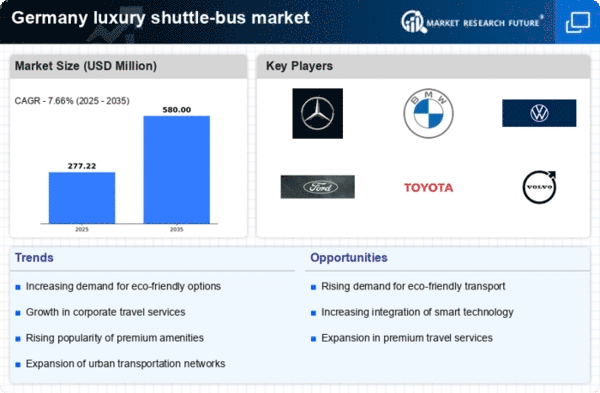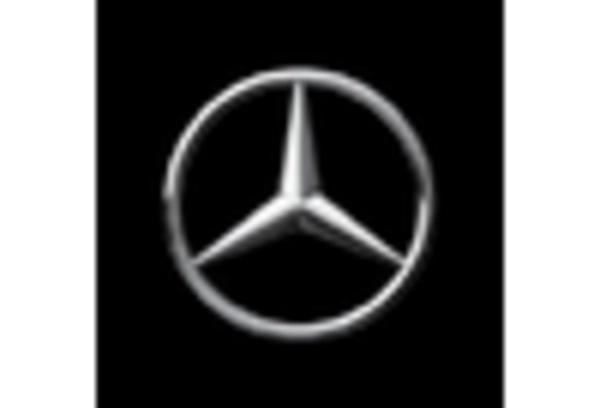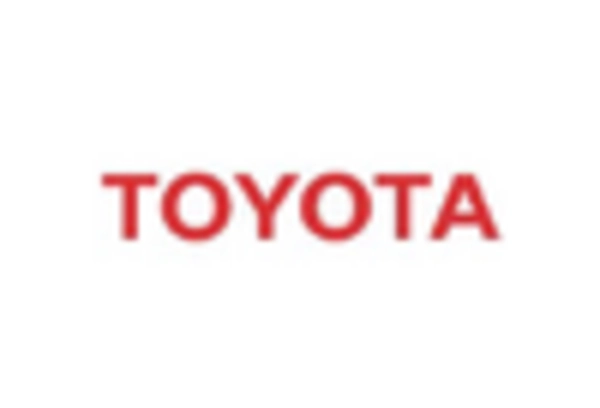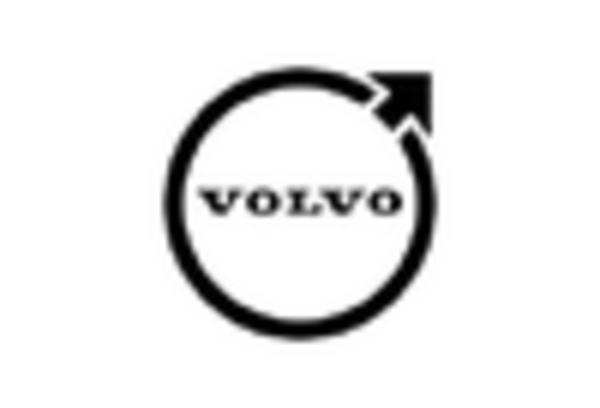Corporate Travel Growth
The corporate sector in Germany is witnessing a notable increase in travel expenditures, which is positively impacting the luxury shuttle-bus market. Businesses are increasingly opting for luxury shuttle services to transport employees and clients, enhancing their travel experience. In 2025, corporate travel spending in Germany is expected to reach approximately €30 billion, with a significant portion allocated to premium transport solutions. This trend indicates a growing recognition of the importance of comfort and convenience in business travel. The luxury shuttle-bus market industry stands to gain from this corporate focus, as companies prioritize high-quality transportation for their workforce and guests.
Increasing Urbanization
The trend of urbanization in Germany is driving the luxury shuttle-bus market. As more individuals migrate to urban areas, the demand for efficient and comfortable transportation options rises. Urban centers are experiencing a surge in population density, leading to increased traffic congestion. Consequently, luxury shuttle-buses offer a viable solution for both residents and tourists seeking convenient travel. In 2025, urban areas in Germany are projected to account for over 75% of the population, further emphasizing the need for premium transport services. The luxury shuttle-bus market industry is likely to benefit from this demographic shift, as more people seek reliable and stylish travel alternatives in bustling cities.
Rising Disposable Income
The increase in disposable income among the German population is a crucial driver for the luxury shuttle-bus market. As individuals experience higher earnings, their willingness to spend on premium services, including luxury transportation, grows. In 2025, it is estimated that the average disposable income in Germany will rise by 4%, leading to greater demand for luxury travel options. This trend suggests that more consumers are likely to seek out luxury shuttle-bus services for both personal and business travel. The luxury shuttle-bus market industry is poised to capitalize on this economic growth, as affluent consumers prioritize comfort and exclusivity in their travel choices.
Enhanced Safety Regulations
The luxury shuttle-bus market is also influenced by the implementation of enhanced safety regulations in Germany. As safety becomes a paramount concern for travelers, luxury shuttle services are adapting to meet these standards. The introduction of stricter regulations regarding vehicle maintenance, driver training, and passenger safety is likely to elevate the quality of service in the luxury shuttle-bus market industry. In 2025, compliance with these regulations may become a competitive advantage, as consumers increasingly prioritize safety in their travel decisions. This focus on safety could lead to a more robust market, as companies that adhere to these standards gain consumer trust.
Technological Advancements in Fleet Management
Technological advancements are reshaping the luxury shuttle-bus market in Germany, particularly in fleet management. Innovations such as GPS tracking, real-time data analytics, and automated scheduling systems are enhancing operational efficiency. These technologies allow companies to optimize routes, reduce wait times, and improve overall customer satisfaction. In 2025, it is anticipated that the integration of advanced technology will be a key differentiator in the luxury shuttle-bus market industry. As operators adopt these innovations, they may attract a more tech-savvy clientele seeking seamless travel experiences. This trend indicates a shift towards a more efficient and customer-focused luxury shuttle-bus service.
















